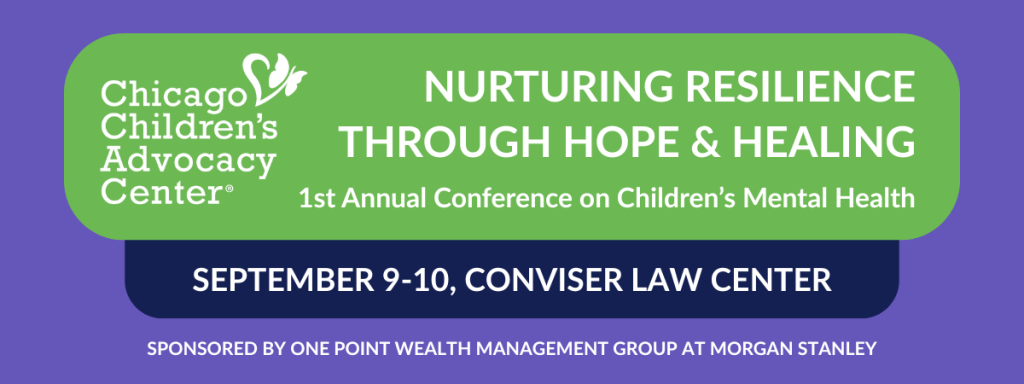
Nurturing Resilience Through Hope & Healing:
ChicagoCAC's 1st Annual Conference on Children’s Mental Health
September 9-10, 2025
Conviser Law Center, 565 West Adams Street, Chicago IL
Nurturing Resilience Through Hope & Healing was born out of a desire to unite mental health professionals dedicated to supporting children and families impacted by trauma, including child sexual abuse. It is our aim to highlight promising and innovative practices that align with trauma-informed and client-centered care for youth and families. This event is proudly sponsored by One Point Wealth Management Group at Morgan Stanley.
Conference Schedule | Tuesday September 9, 2025
8:00am-9:00am | Breakfast & Registration
Location: Lobby
9:00am | Welcome & Opening RemarksLocation: Main Auditorium
9:15am-10:45am | Keynote Presentation

Strengthening our Response: Treatment Guidelines for Youth Impacted by Trafficking Location: Main AuditoriumPresented by: Kelly Kinnish, PhD
Kelly Kinnish, PhD, is the Director of the National Center on Child Trafficking in the School of Public Health at Georgia State University. She has over 30 years’ experience working with maltreated and at-risk children and families in clinical, research, and administrative capacities with specific interest and expertise in child trauma and trafficking. She was the Director of Clinical Services at the Georgia Center for Child Advocacy for 14 years and also Director of Project Intersect and the Envision Project, federally funded programs focused on improving the well-being of commercially sexually exploited and trafficked youth. She is actively engaged in the development, adaptation, and dissemination of interventions as well the training of mental health providers and systems professionals to better recognize and respond to their needs. She is a Trauma-focused Cognitive Behavioral Therapy (TF-CBT) National Trainer.
11:00AM-12:30PM | Breakout Session Block A

Presenter: Chauntay Worsham El, LCSW
Location: Main Auditorium
Therapists, social workers, and case managers working with children and families impacted by child sexual abuse and complex trauma know the struggle: parents who disengage, families who mistrust systems, and the emotional fatigue of trying to build partnership in the face of overwhelming adversity. Many professionals find themselves caught between the demands of compliance and the deeper need for authentic, healing-centered engagement. This interactive breakout session is designed specifically for clinicians and service providers who deliver individual, group, and family therapy, intensive case management, and wraparound mental health services to trauma-impacted families. Drawing on Motivational Interviewing, the HOPE (Healthy Outcomes from Positive Experiences) model, and research-backed trauma-informed strategies, this session offers hands-on learning and practical tools you can apply immediately in your work.
Chauntay Worsham El, LCSW, CFTP, TCTSY-F is a nationally recognized trauma therapist, consultant, and CEO of Lotus Trauma Care. With over 18 years of experience in social services across mental health and community settings, she has trained more than 5,500 clinical and non-clinical professionals—including at national conferences—on trauma-informed engagement, parent engagement, and resilience-building for families affected by child sexual abuse and complex trauma. As a Program Director, Chauntay developed parent coaching and training curricula that increased parent engagement by 80% and achieved 90% retention in family programming. She is trained in Attachment Regulation Competency (ARC), Child-Parent Psychotherapy (CPP), Trauma Focused Cognitive Behavioral Therapy (TFCBT) and specializes in integrating positive childhood experiences and protective factors into clinical practice to foster youth resilience and social-emotional development. Chauntay’s interactive, strengths-based approach equips mental health professionals with the skills to create lasting impact for children and families.
 Presenter: Clara Takarabe
Presenter: Clara Takarabe
Location: Room 704
Mental health professionals face elevated risks of burnout, post-traumatic stress disorder (PTSD), and secondary traumatization due to sustained exposure to high-stress clinical environments. While these conditions share overlapping features, they differ in neurobiological mechanisms, including HPA axis dysregulation, amygdala hyperreactivity, and prefrontal–limbic imbalance. This presentation introduces Clinically Designed Improvisatory Music (CDIM), a socially embedded, clinician-guided music intervention developed through the Northwestern Music and Medicine Program, as a non-pharmacological approach to modulating brain networks involved in stress regulation. Grounded in neuropsychiatric research, CDIM targets felt safety—a parasympathetically dominant state associated with reduced hyperarousal—through multisensory entrainment, affective attunement, and predictive coding in auditory–emotional processing. Preliminary data from NEA-, NIH-, and Osher Foundation–funded studies show reductions in measures of anxiety, changes in brain network connectivity, and autonomic measures. Practical strategies for integrating CDIM into wellness programs for mental health professionals will be discussed, offering a sustainable complement to existing interventions.
Clara Takarabe is a musician–clinician scientist and co-director of the Northwestern Music and Medicine Program, which she leads in partnership with cognitive neurologist Dr. Borna Bonakdarpour. She is a core member of the team that developed Clinically Designed Improvisatory Music (CDIM), a form of socially embedded clinical music intervention structured within neuropsychiatric models of felt safety. CDIM is currently under investigation as a means of inducing calm and reducing anxiety in individuals with Alzheimer’s-related neuropsychiatric syndromes, supported by grants from the National Endowment for the Arts Sound Health Initiative, the Osher Foundation, and the National Institutes of Health. In parallel with her research, Takarabe performs as a violist with the Chicago Symphony Orchestra and collaborates in the experimental electronic ensemble Nireus, alongside composer–synthesist Anton Riehl
 Presenter: Julia Matson, LCSW
Presenter: Julia Matson, LCSW
Location: Room C25
This experiential workshop invites participants to engage directly in somatic mindfulness and bilateral intuitive art-making practices inspired by Cornelia Elbrecht’s trauma-informed approach to working with the body through art-making. Designed to explore and tend to emotions and wisdom held in the body, these practices provide powerful tools for our own nervous system regulation as well as therapeutic work with clients. Attendees will be guided through gentle somatic awareness exercises followed by a structured art-making process using both hands, engaging cross-hemispheric brain activity and encouraging embodied insight.Time will be given for personal reflection, optional sharing, and clinical discussion. Participants will leave with practical, trauma-sensitive tools to support self-regulation and to use in therapeutic practice across a range of clinical contexts, including trauma, anxiety, and emotional dysregulation.
Julia Matson is a Licensed Clinical Social Worker with more than 15 years of experience supporting survivors of trauma. She spent 11 of those years as both a therapist and clinical supervisor at Chicago Children’s Advocacy Center, where she worked extensively with children, families, and multidisciplinary teams. Julia currently practices at the Center for Authentic Living, where she provides individual therapy across the lifespan and facilitates groups focused on building resilience, deepening self-awareness, and fostering creativity. With a passion for holistic healing, Julia integrates expressive and experiential approaches to help clients reconnect with their inner wisdom and support long-term well-being.
12:30pm-1:45pm | Break for Lunch
1:45PM-3:15PM | Breakout Session Block B

 Presenter: Kelly Kinnish, PhD & Rhiannon Reaves, LCPC
Presenter: Kelly Kinnish, PhD & Rhiannon Reaves, LCPC
Location: Main Auditorium
This workshop will share and discuss concerning and problematic sexual behaviors in the context of sex trafficking and commercial sexual exploitation of youth. Risk factors, impacts, and intervention needs will be discussed utilizing case examples.
Kelly Kinnish, PhD, is the Director of the National Center on Child Trafficking in the School of Public Health at Georgia State University. She has over 30 years’ experience working with maltreated and at-risk children and families in clinical, research, and administrative capacities with specific interest and expertise in child trauma and trafficking. She was the Director of Clinical Services at the Georgia Center for Child Advocacy for 14 years and also Director of Project Intersect and the Envision Project, federally funded programs focused on improving the well-being of commercially sexually exploited and trafficked youth. She is actively engaged in the development, adaptation, and dissemination of interventions as well the training of mental health providers and systems professionals to better recognize and respond to their needs. She is a Trauma-focused Cognitive Behavioral Therapy (TF-CBT) National Trainer.
Rhiannon Reaves, LCPC, is the Director of Clinical Services at Chicago Children’s Advocacy Center. She earned a Master of Science in Clinical Psychology/Community Mental Health from Western Illinois University and is a Licensed Clinical Professional Counselor in Illinois. Rhiannon has 20 years of experience in the mental health field and expertise in working with children and adolescents who have experienced maltreatment and trauma. In her role at ChicagoCAC, she is responsible for providing clinical and administrative supervision of individual and group therapy services in the Family Hope Center. Rhiannon also manages special programming at ChicagoCAC, including treatment for problematic sexual behavior and clinical services for children who have experienced commercial sexual exploitation and trafficking. She has completed clinical training on the provision of Problematic Sexual Behavior – Cognitive Behavior Therapy (PSB-CBT) for School-Aged Children and Advanced Training for Children Ages 13-14 and serves as a Within-Agency Trainer for these models.
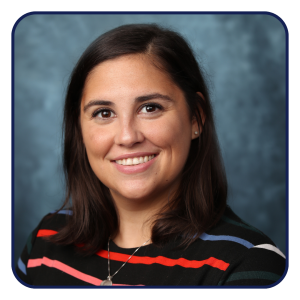
 Presenters: Megan K. Lerner, LCSW & Nicole du Mont, LCSW
Presenters: Megan K. Lerner, LCSW & Nicole du Mont, LCSW
Location: Room 704
This presentation will focus on helping all clinicians understand how to utilize Trauma Focused Cognitive Behavioral Therapy (TF-CBT) in sessions with youth. Using the TF-CBT acronym PRACTICE, the presenters will highlight both the evidence base for using this modality and how to adapt it to your individual clinical work. Presenters will provide clinicians of all experiences with tangible activities and examples of this work, from their own vast experience utilizing this modality in an outpatient therapy setting.
Megan K. Lerner is a bilingual licensed clinical social worker (LCSW), who has been in practice for over fifteen years. She began her career as the first med/psych social worker in the hospital overnight. She was an outpatient therapist at a local children’s hospital, and served as the Clinical Coordinator of the Trauma Treatment Service, a multidisciplinary team providing evidence-based treatment to childhood survivors. She and the team led the various forms of trauma specific mental health care interventions. Additionally, she has been awarded several grants to support this initiative and has taught provider wellness and trauma informed care providers all over the country. She is also employed as an adjunct faculty member at DePaul University. Megan is currently the Director of the Kaufman Wolf Center for Trauma and Resilience at JCFS Chicago.
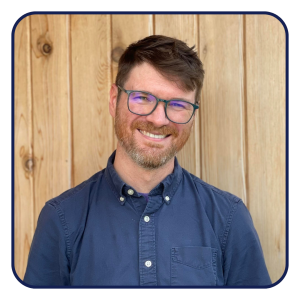
 Presenters: Michael Melaniphy, LCSW & Madeleine Ryan, LCSW
Presenters: Michael Melaniphy, LCSW & Madeleine Ryan, LCSW
Location: Room C25
How do we strengthen and repair attachment when children have been exposed to domestic violence? In this training you will learn the basics of attachment theory in the context of child development and explore tools that help us to understand attachment, including the Circle of Security, the Nurturing Children Wheel, and Child Parent Psychotherapy. We will also discuss how to support caregivers and children in establishing safety and strengthening relationships after violence.
Michael Melaniphy (he/him) is a Licensed Clinical Social Worker in the state of Illinois. He received his Masters of Social Work from Loyola University Chicago, with a concentration in mental health care and a sub-concentration in social work services with migrants and refugees. He has worked at Sarah’s Inn, a domestic violence agency, since 2018, first as a Child and Family Counselor, and then as the Counseling Program Supervisor. In these roles Michael has provided counseling to individuals and families across the life-span impacted by domestic violence and other traumatic experiences. Michael is rostered in Child Parent Psychotherapy, and is currently completing a certificate program through the Institute for Advanced Psychotherapy at Loyola University Chicago.
Madeleine Ryan (she/her) is a Licensed Clinical Social Worker and works at Sarah’s Inn as a Child & Family Counselor. She received her Masters of Social Work from Erikson with a concentration in infant and early childhood mental health. Since joining Sarah’s Inn in 2023, Madeleine has provided advocacy and counseling services to adults, children, and families affected by domestic violence and was recently rostered in Child Parent Psychotherapy.
3:30PM-5:00PM | Breakout Session Block C

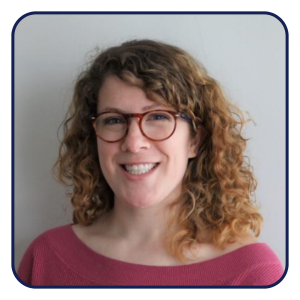 Presenters: Urbi Nag, LCPC & Bailey Hicks, LCSW
Presenters: Urbi Nag, LCPC & Bailey Hicks, LCSW
Location: Main Auditorium
Childhood sexual abuse (CSA) is a profound betrayal that leaves invisible but enduring impacts on children’s and adolescents’ identity formation, attachment, and self-concept. This session explores the complex interplay between CSA and the development of maladaptive coping strategies, including overcontrol, perfectionism, substance use, and self-harm. Drawing on betrayal trauma theory and the traumagenic model, the presentation will examine how CSA undermines the victim’s trust in self and others, disrupts attachment security, and fosters negative core beliefs marked by shame, guilt, and stigmatization. Attendees will leave with practical tools and evidence-based strategies—including psychoeducation, affect modulation, parent training, cognitive restructuring, and trauma narratives—to support children and adolescents in rebuilding trust, reclaiming agency, and processing trauma safely. Developmentally appropriate grounding and regulation techniques will be presented as essential, ongoing practices that can be integrated into daily routines—rather than reserved solely for moments of crisis. This session aims to deepen clinical insight into the long-lasting emotional and relational consequences of CSA, with a call to reframe therapeutic work through a lens of compassion, developmentally informed care, and survivor empowerment.
Urbi Nag, LCPC, is a clinical therapist with over 17 years of experience specializing in trauma-focused care and play therapy. She currently provides individual therapy, family therapy, and parent training at Rooted Connections Counseling, supporting clients as they navigate trauma, anxiety, depression, grief, addiction, and emotional regulation challenges. Urbi has worked in schools, residential settings, community mental health centers, and private practice, delivering compassionate, client-centered care to individuals across the lifespan. She also facilitates ongoing mental health workshops at The Chicago High School for the Arts. Her work reflects a deep commitment to healing through education, empathy, and evidence-based care. Urbi recently presented “Anxiety and Trauma: Decoding the Connection for Effective Healing” at the NAMI Wisconsin 2025 Annual Conference. She is scheduled to speak at several national conferences, including the Kentucky School Counselor Association Conference, the Wisconsin and Illinois Counseling Association Conferences, and the NAMI Illinois State Conference, where she will address topics such as student anxiety, relational health, ADHD, and trauma-informed care. In addition, Urbi has extensive experience working with children, adolescents, and adults who have experienced child sexual abuse, providing compassionate, trauma-informed support at every stage of healing.
Bailey is a Licensed Clinical Social Worker (LCSW) with six years of experience working with children, adolescents, and young adults. She has experience working with a wide range of ages and presenting concerns, starting her career in nonprofits working with unaccompanied children, then transitioning to trauma therapy at a rape crisis center working with clients as young as five, then well into late adulthood. Bailey has experience working with significant trauma, anxiety, depression, and life transitions. She also has unique experience utilizing artistic and “geek” approaches to reach clients. Bailey transitioned from direct practice with clients to instructional design and subject matter expertise work in higher education. She currently works in higher education, developing and designing online graduate programs for social work, professional counseling, and speech-language pathology programs. Whether working directly with a client or developing a course for a future therapist, Bailey incorporates trauma responsive principles into her work with others. With clients, Bailey combines empathy with humor to form genuine connections with clients, all in an effort to use the therapy room as a collaborative space to help clients address their concerns. When designing educational content, Bailey ensures schools are providing engaging and accessible experiences for students to build their professional and clinical skills.
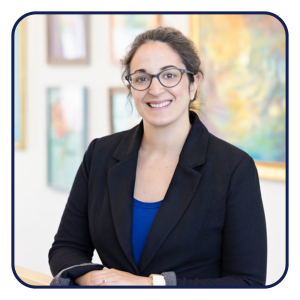 Presenter: Katy Irving, LCSW
Presenter: Katy Irving, LCSW
Location: Room 704
This presentation will focus on resource support for non-offending caregivers of children who have experienced sexual abuse or other forms of trauma. Family Centered Coaching is an open access coaching model created by The Prosperity Agenda. The model focuses on building staff skills of crisis case management, motivational interviewing and executive skill building. In 2017, ChicagoCAC started to incorporate Family Centered Coaching into its work with caregivers and continues to deepen the use of coaching tools. This presentation will provide an overview of a Family Centered Coaching mindset and its use with non-offending caregivers. Participants will discuss unique needs of caregivers whose children experienced child sexual abuse and considerations for implementing various Family Centered Coaching tools.
As Director of PATHH and Family Support Services at ChicagoCAC, Katy Irving manages a team of staff who provide resource support and connection to mental health services for caregivers and families impacted by sexual abuse and trauma. Ms. Irving oversees collaboration with mental health agencies throughout Chicago to connect families to appropriate trauma-informed treatment in a timely manner. This includes gathering information on engagement, retention and system capacity to better understand the gaps in services for families living in Chicago. Ms. Irving earned a Masters of Social Work at the University at Buffalo School of Social Work and is a Licensed Clinical Social Worker in the state of Illinois.
 Presenter: Jennifer Smith, PhD, LCPC
Presenter: Jennifer Smith, PhD, LCPC
Location: Room C25
Child sexual abuse (CSA) is a public health issue that affects children, families, and entire communities. This presentation will explore the impact of CSA disclosure on caregivers. We will examine how caregivers’ own inner child trauma (the long-term psychological and emotional effects that can surface in adults with similar or past traumatic experiences) can influence parenting, relationships, and overall well-being following their child’s disclosure of sexual abuse. A special focus will be placed on how Narrative Exposure Therapy (NET) can help caregivers reconnect and build resilience for themselves and their children. NET is a short-term, evidence-based modality that organizes fragmented traumatic memories into coherent narratives. The importance of therapeutic storytelling, whole-family healing, and breaking the cycle of silence can lead to future advocacy, enabling survivors and families to transform their pain into purpose. By fostering healing in children and families, we create a ripple effect of protection, prevention, and empowerment across communities.
Jennifer Smith, PhD, LCPC, is the Director of The Encompassing Center, a community mental health center serving Near Westside, East and West Garfield Park, and North Lawndale in Chicago, IL. She has over 20 years of experience supporting youth, families, and communities. Her work within child welfare, residential care, adoption services, school- and home-based counseling, and private practice has helped many to connect, grow, and heal. Jennifer is passionate about the beauty of storytelling. She enjoys writing children’s books, facilitating peace circles, and supporting education supervision in Narrative Exposure Therapy (NET).
Conference Schedule | Wednesday September 10, 2025
8:00am-9:00am | Breakfast & Registration
Location: Lobby
9:00am | Welcome & Opening RemarksLocation: Main Auditorium
9:15am-10:45am | Keynote Presentation
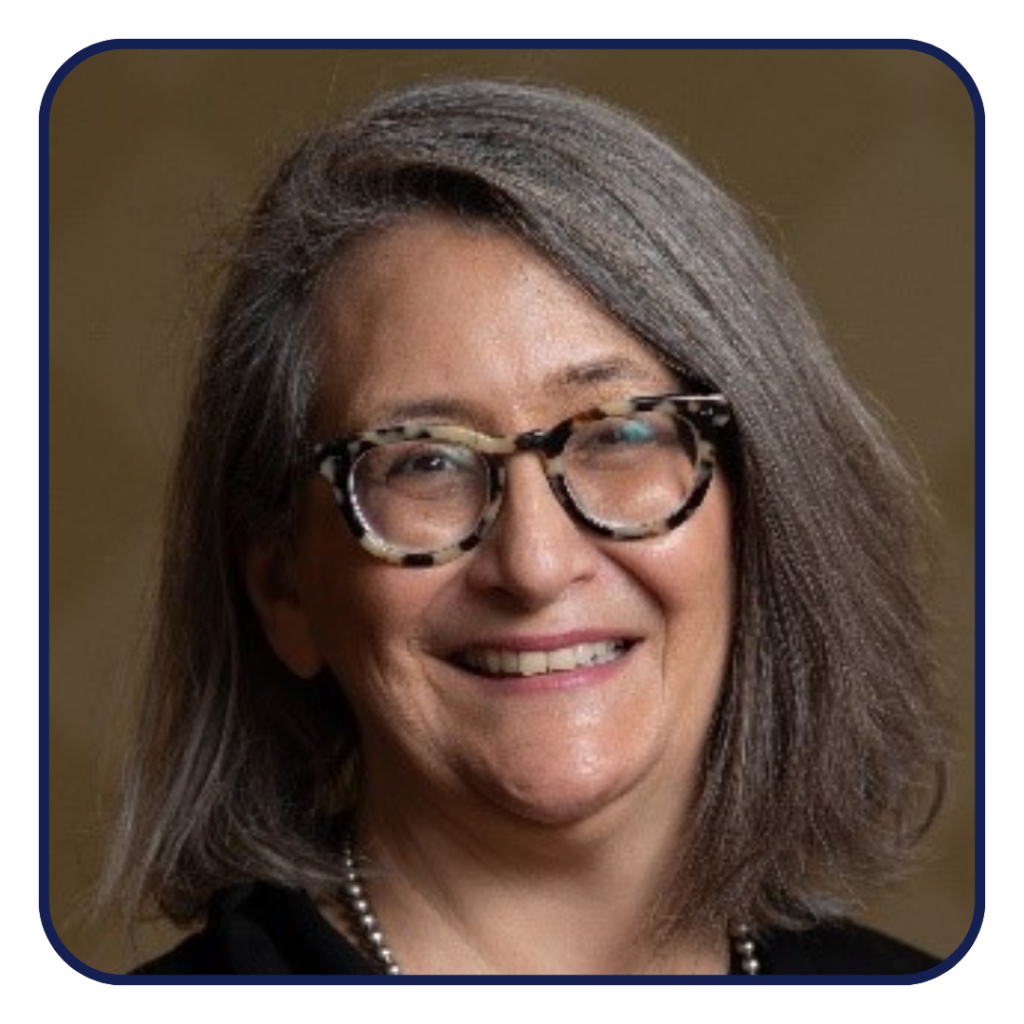
Children with Problem Sexual Behaviors: Who Are They and How Can We Help? Location: Main AuditoriumPresented by: Jane Silovsky, PhD
Jane Silovsky, PhD, is a Professor of Pediatrics at the University of Oklahoma Health Sciences Center (OUHSC). She serves as the CMRI/Jean Gumerson Endowed Chair and Director of the Center on Child Abuse and Neglect (CCAN). Since 1996, Dr. Silovsky has been the Director for the Treatment Program for Children with Problematic Sexual Behavior (PSB); funded by the Oklahoma Department of Human Services (OKDHS), Oklahoma Juvenile Bureau, and Oklahoma Juvenile Affairs (OJA)). She is a licensed psychologist and actively provides treatment and supervision weekly for treatment groups serving these youth with PSB; these youth and their families have a variety of needs such as reunification, trauma exposure, and other behavior problems. Dr. Silovsky is one of the primary developers of the Preschool Treatment Program for Children with Problematic Sexual Behaviors (PSB-CBT-P). With Drs. Bigfoot and Burris, Dr. Silovsky facilitated the development of Honoring Children, Respectful Ways: Treatment for Native American Children with Sexual Behavior Problems training and treatment manuals, which is an adaptation of the treatment for children with PSB through the Indian Country Child Trauma Center (ICCTC; previously funded through SAMHSA).
11:00AM-12:30PM | Breakout Session Block D
 Presenter: Joshua Garvey, LCPC & Ellyn Drathring Jung, LCSW
Presenter: Joshua Garvey, LCPC & Ellyn Drathring Jung, LCSW
Location: Main Auditorium
This interactive 90-minute workshop combines relationship-based family engagement strategies with trauma-informed care principles to help mental health professionals build stronger, more effective partnerships with families affected by trauma. Participants will learn practical relationship-building skills through understanding perspective-taking, emotional awareness, reflective communication, and non-judgmental presence while understanding how trauma impacts both children and caregivers. The workshop integrates our 60+ years of therapeutic nursery experience with evidence-based approaches to creating emotional safety in therapeutic relationships.
Joshua Garvey brings expertise in clinical leadership and community mental health services to his role as Assistant Director of Virginia Frank Child Development Center at JCFS Chicago. After earning his master’s degree in clinical psychology from Roosevelt University, Joshua established himself through leadership roles at non-profit social services agencies throughout Chicagoland. His therapeutic approach is grounded in psychodynamic theory, while incorporating evidence-based modalities including Cognitive Behavioral Therapy, Acceptance and Commitment Therapy and Eye Movement Desensitization and Reprocessing. Joshua combines program leadership with clinical excellence, supporting both staff development and therapeutic services to advance the center’s mission of strengthening families and nurturing child development.
Ellyn Drathring Jung is a Licensed Clinical Social Worker who offers play-based psychodynamic therapy for children, adolescents and families. She is committed to helping individuals build relational and emotional capacity to foster fulfilling family relationships and positive self-regard. Her training in community health and extensive experience working in health centers informs her holistic approach to the impact of systemic trauma and socioeconomic factors on mental health. Ellyn holds a master’s degree in social work specializing in community health and urban development from the Jane Addams College of Social Work at UIC and completed the Child and Family Therapy post-graduate course through New York University’s Silver School of Social Work. Ellyn sees clients in our West Rogers Park location.
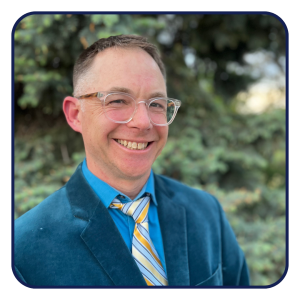 Presenter: Phil Weglarz, PhD, MFT, REAT
Presenter: Phil Weglarz, PhD, MFT, REAT
Location: Room C40
In this hands-on workshop, participants will learn about and practice various trauma-informed expressive arts therapy approaches to working with children and families across stages of treatment, from intake/assessment through trauma processing and on to integration, resourcing, and discharge.
As a Marriage and Family Therapist (MFT) and a Registered Expressive Arts Therapist (REAT), Phil Weglarz, PhD, MFT, REAT has been providing expressive arts-based therapeutic services for children, adults, families, and elders for twenty years. He is also core faculty and Program Chair for the Master’s degree program in Counseling Psychology with a concentration in Expressive Arts Therapy at the California Institute of Integral Studies in San Francisco.
 Presenter: Jan Waters, LCPC
Presenter: Jan Waters, LCPC
Location: Room C35
Our work, providing therapy and other related services to children and families impacted by abuse and multiple other forms of trauma, opens us all up to negative symptoms associated with vicarious trauma. These symptoms may be exacerbated by toxic, negative, and dangerous social and political climates. In this workshop, we will pull from spiritual and philosophical practices that may help us to shape our thinking and our worldview in ways that can support resilience in our work and environments. Participants will also be introduced to several social and psychological approaches offering activities we can practice to enhance our resilience.
Jan Waters, Chief Program Officer, Clinical Services, at Chicago Children’s Advocacy Center, manages the mental health services and the PATHH collaboration (a network of treatment providers seeking to improve service delivery for children needing mental health services in Chicago) at ChicagoCAC. She has 25 years of clinical and managerial experience and working with children and adults who have experienced abuse and other types of trauma with a subspecialty in working with individuals with intellectual and developmental disabilities. She has extensive training and experience providing clinical interventions, as well as volunteer services, to children and adults who have experienced child sexual abuse and sexual assault. Prior to working at ChicagoCAC, Ms. Waters managed the community mental health programs for the Canadian Mental Health Association Kawartha Lakes Branch. Prior to that, she was Director of Clinical Services for Little City Foundation, an agency specializing in services for individuals with intellectual and developmental disabilities. Ms. Waters has presented and offered trainings internationally on topics such as developmental psychotherapy, trauma, autism, and mindfulness. She is a Licensed Clinical Professional Counselor in Illinois and holds a Master in Counseling Psychology from Benedictine University.
12:30pm-1:45pm | Break for Lunch
1:45PM-3:15PM | Breakout Session Block E
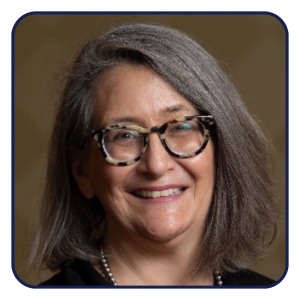 Presenter: Jane Silovsky, PhD
Presenter: Jane Silovsky, PhD
Location: Main Auditorium
During this presentation, attendees will gain insight into the critical role of engaging caregivers on sensitive topics such as problematic sexual behavior (PSB). Caregiver active engagement is essential for effective interventions for PSB. The presentation will explore how caregivers might initially react upon learning about their child’s behaviors and strategies for navigating these reactions with empathy and support. The presentation will also focus on ways to enhance the engagement of caregivers, emphasizing the significant of building a collaborative and trusting therapeutic relationship between clinicians and families to effectively support active involvement in intervention.
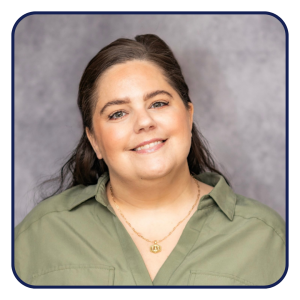 Presenter: Brittany Gerard, LPC
Presenter: Brittany Gerard, LPC
Location: Room C20
Child sexual abuse often leaves survivors, especially children, with complex internal systems shaped by shame, secrecy, and protective adaptations. Internal Family Systems (IFS) offers a non-pathologizing, developmentally sensitive model for supporting survivors through individual and family therapy. In this clinically grounded session, participants will learn how to apply IFS principles with child clients and their caregivers. Through a mix of didactic teaching, a case vignette, and clinical tools, attendees will explore how Protectors, Exiles, and the Self show up in child therapy. Emphasis will be placed on building safety, engaging in expressive-based parts work, and supporting caregivers in shifting systematic dynamics. Participants will leave with concrete strategies for incorporating IFS with child clients, even when trauma is ongoing or still unprocessed.
Brittany Gerard is a Licensed Professional Counselor, with a Master of Education in Clinical Mental Health Counseling from DePaul University, specializing in complex trauma, child and adolescent therapy, and relationships. She currently serves as a therapist at McLean County Children’s Advocacy Center. She also works with a private practice, where her work continues to focus on healing complex trauma. With a background in Trauma-Focused Cognitive Behavioral Therapy, post-traumatic stress, grief, and expressive modalities, she integrates Internal Family Systems into clinical work with child sex abuse survivors. Her approach is rooted in compassion, clinical insight, and a deep respect for the resilience of young survivors. She is passionate about non-pathologizing, holistic, and empowerment-based approaches to healing trauma.
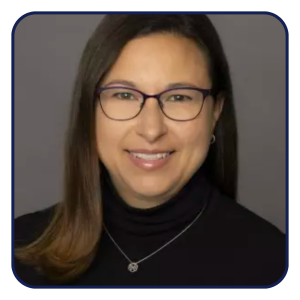
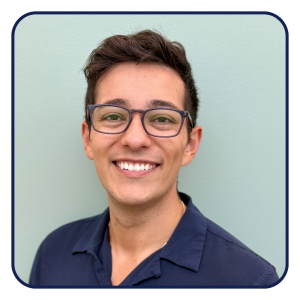
 Presenters: Gloria Cockerill, LCSW, RPT-S; Fernando Gonzales III, LCSW, RPT; Shana Sanchez, LCSW
Presenters: Gloria Cockerill, LCSW, RPT-S; Fernando Gonzales III, LCSW, RPT; Shana Sanchez, LCSW
Location: Room C35
Adolescents present unique challenges in trauma work due to mistrust, shame, and emotional dysregulation. We often witness a tension between the adolescent’s natural drive for autonomy and the essential need for secure, attuned relationships that promote healing. This session explores bottom-up approaches that bypass verbal defenses, access deeper healing, and match the adolescent’s developmental needs to the therapeutic intervention. Particular emphasis will be placed on building safety, agency, and emotional literacy in a developmentally sensitive way. Drawing from Attachment Theory, Adlerian Play Therapy, and Somatic Experiencing, participants will become familiar with directive and non-directive interventions for engaging adolescents on their path towards resiliency. Through the use of experiential play, case material and video examples, participants will be exposed to the skills needed to analyze and explain the unique challenges adolescents face in trauma work including how these factors influence therapeutic intervention strategies; Demonstrate two bottom-up therapeutic approaches, drawing from Attachment Theory, Adlerian Play Therapy, and Somatic Experiencing, to promote healing while addressing the adolescent’s need for autonomy and secure relationships and be able to develop developmentally sensitive interventions that enhance safety, agency, and emotional literacy, tailored to adolescents’ unique trauma experiences and needs.
Gloria M. Cockerill, LCSW, RPT-S™, Certified Theraplay® Practitioner, Supervisor & Trainer. She has practiced extensively with children and families impacted by trauma, attachment disruptions, and a broad range of social, emotional, and behavioral challenges. Gloria’s work with families is informed by attachment, family systems, and Adlerian theories and incorporates strengths-based directive and non-directive play therapy approaches. She has worked in a variety of settings including Early Intervention, Community Mental Health, Private Practice, Child Welfare and currently serves as the Director of Behavioral Health at One Family Illinois. In addition to her direct practice, she serves on several committees for the International Association for Play Therapy, The Theraplay Practice Advisory Committee and has served on the board of the Illinois Association for Play Therapy. Her contributions to the field include written submissions to several edited volumes, providing training opportunities and consultation to others within the mental health and play therapy communities.
Shana Sanchez is a Licensed Clinical Social Worker and Theraplay® Foundational Practitioner with experience providing trauma-informed care to children, adolescents, adults, and families. Her clinical work is grounded in psychodynamic, attachment, and Adlerian theories and integrates both directive and non-directive experiential modalities. Shana’s approach incorporates play therapy, Internal Family Systems (IFS), movement-based interventions, expressive arts, and sandtray to support emotional regulation, strengthen relational functioning, and promote lasting behavioral change. Shana has provided care across a continuum of service levels, including inpatient hospitalization, partial hospitalization (PHP), intensive outpatient (IOP), and outpatient settings. She has practiced extensively with individuals and families impacted by trauma, attachment disruptions, emotional dysregulation, and relational distress. Her work emphasizes the central role of the therapeutic relationship in the healing process. She is currently in the process of obtaining her Registered Play Therapist (RPT) credential and is the founder of Upstream Therapy, a private practice in Chicago.
3:30PM-5:00PM | Breakout Session Block F
 Presenter: Courtney Bunn, LCSW
Presenter: Courtney Bunn, LCSW
Location: Main Auditorium
This presentation is designed to support professionals working with youth impacted by Human Trafficking (HT) and the Commercial Sexual Exploitation of Children (CSEC). It offers a clinical yet practical framework for understanding the risks these youth face and introduces strategies to build effective, individualized safety plans rooted in trauma-sensitive care and harm reduction principles. The session begins by examining how to clinically conceptualize the risks these youth face based on their unique vulnerabilities and histories. These risks include externalized threats to safety such as environmental/placement instability, elopement, ongoing abuse, re-exploitation, online harm or other risky relationships. These risks also include internalized threats to safety such as dissociation, suicidal ideation, self-harm, and substance abuse. These risks stem from a variety of unmet needs and coping mechanisms shaped by complex trauma. Therefore, these risks require a delicate approach that is considerate of developmental stages, attachment disruptions, trauma responses and survivor autonomy. A core focus of this presentation will be the development of individualized safety plans. Attendees will be introduced to practical tools that help guide collaborative safety planning conversations. These tools help a youth identify what safety looks like for them, who trusted people and resources are, where they feel secure, and how they want to be supported in moments of crisis or vulnerability. Models shared will emphasize the therapeutic relationship and incorporate harm reduction strategies. Participants will be encouraged to consider how they can hold nuanced space with their clients in terms of decision-making, boundaries, and risk mitigation, especially when youth may not be ready or able to leave exploitative dynamics. We will explore pathways to healing from exploitation that are sustainable and empowering. ‘
Courtney is a Licensed Clinical Social Worker specializing in mental health care for youth impacted by trafficking. Her clinical work is grounded in the intersection of complex trauma and trafficking, with a particular focus on sexual exploitation during childhood and adolescence. She brings a range of experience across various treatment settings supporting individuals with lived experience of trafficking victimization or vulnerability. While working at the Chicago Children’s Advocacy Center, Courtney has provided long-term, trauma-adaptive therapy to children and their families. In her role as the Human Trafficking Program Manager, Courtney also serves as a clinical supervisor to a team of clinicians and supports the agency in developing a therapeutic approach to cases with elements of trafficking. In addition to her direct practice, Courtney is committed to building the field’s capacity by delivering trainings and equipping other service providers to treat this population.
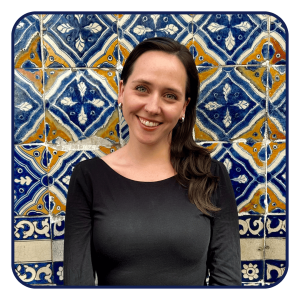

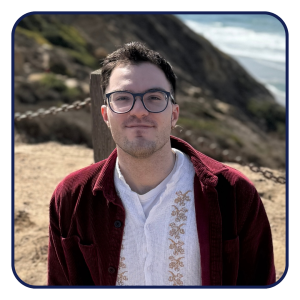 Presenters: Lucia del Rincon Martinez, LCPC, NCC, TCTSY-F; Nicole Marsden, PsyD; Christian Fernandez, LSW
Presenters: Lucia del Rincon Martinez, LCPC, NCC, TCTSY-F; Nicole Marsden, PsyD; Christian Fernandez, LSW
Location: Room C25
Clinicians from La Rabida Children’s Hospital’s Chicago Child Trauma Center (CCTC) will share specific examples and ways that collaborating with other community agencies has helped better serve CCTC clients and families. Presenters will also discuss how cross-agency collaboration alleviates the load on individual providers by offering access to a wider network of supports and resources. Research and examples will highlight areas in which this collaboration has been helpful as well as identify areas of growth. During the second half of the presentation, attendees will have the opportunity to reflect and engage in breakout groups. To close the presentation, a larger group discussion will be facilitated to brainstorm ideas to foster increased interagency collaboration specific to trauma-informed organizations in the Chicagoland area. The goal of the workshop is to create sustainable connections between groups and individuals as a means to improve access to care and resources, strengthen the community of providers, and foster community resilience. By the end of the presentation, participants will 1) understand the benefits of interagency collaboration through research and examples 2) engage in small group reflection to brainstorm specific ways agencies at the conference could collaborate 3) participate in large group discussion to identify concrete action steps to ensure future partnerships.
Lucia is a bilingual trauma therapist at La Rabida Children’s Hospital’s Chicago Child Trauma Center. Lucia received her master’s in Mental Health Counseling and Behavioral Medicine from Boston University’s School of Medicine. Lucia specifically enjoys working with immigrant communities and utilizing art and movement interventions, such as Trauma Center Trauma Sensitive Yoga, in her practice. In her free time, Lucia can often be caught running, taking pictures, or enjoying concerts around the city.
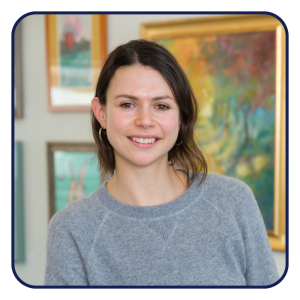
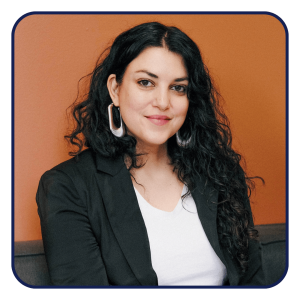 Presenters: Ksenia Chernova, LCSW & Aradhana Walker, LCSW
Presenters: Ksenia Chernova, LCSW & Aradhana Walker, LCSW
Location: Room C35
Child sexual abuse (CSA) can have wide-ranging and long-term impacts, leading to challenging clinical presentation and symptomologies. Chicago CAC is uniquely positioned to provide top-level, holistic, and trauma-informed clinical care to children and families impacted by CSA. This workshop is designed to review CSA facts, provide an overview of the CAC model and dive deeper into the neurobiological impacts of complex developmental trauma. The second half of this workshop will focus on exploring clinical presentations encountered by clinicians when working with survivors of CSA, and exploring the Chicago CAC treatment framework through a case study.
Ksenia Chernova is a therapist and a clinical supervisor at the Children’s Advocacy Center. She has extensive experience supporting children and families across school, hospital, and community-based settings. At the heart of her work is a deep belief in the healing power of relationships and the importance of understanding complex developmental trauma through a lens of strength and resilience. As a clinician and a supervisor, Ksenia strives to create therapeutic spaces grounded in trust, authenticity, and attunement. In addition to direct practice, Ksenia enjoys providing trainings for new clinicians and continuing her own clinical growth through ongoing educational opportunities. Ksenia earned her master’s degree from the Crown Family School of Social Work, Policy and Practice. She is certified in several evidence-based modalities, including EMDR and CFTSI, and she completed a C-DBT fellowship through University of Chicago.
Aradhana (Rudi) Walker (she/they) LCSW, is a therapist specializing in trauma-responsive care and treatment for complex developmental trauma. Aradhana served as a therapist with Chicago Children’s Advocacy Center for 4+ years and now works as a therapist and clinical supervisor with Roamers Therapy in Chicago. Aradhana partners with youth and adults who have experienced child abuse, sexual violence and other forms of trauma to co-create pathways to healing. In her clinical work, Aradhana draws on the Neurosequential Model of Therapeutics, polyvagal theory, Acceptance and Commitment Therapy, play therapy and somatic strategies to support individuals in finding hope and transformation after trauma. Aradhana is also dedicated to connecting with the broader mental health community to advocate for greater and more equitable access to care.
Questions? Please contact Rhiannon Reaves, Director of Clinical Services at rreaves@chicagocac.org
